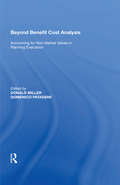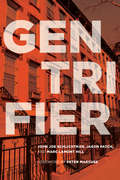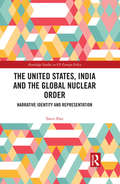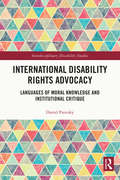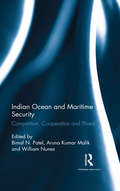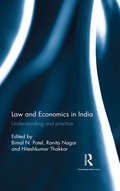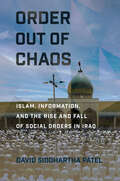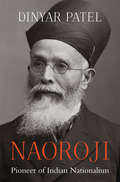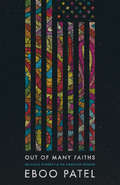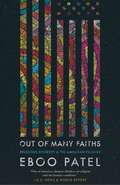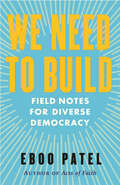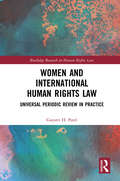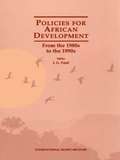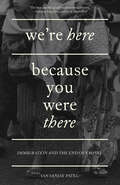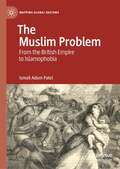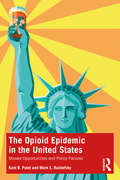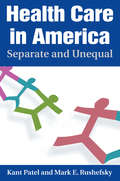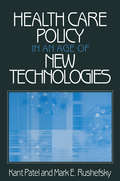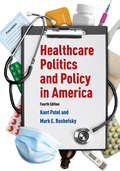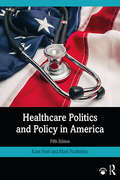- Table View
- List View
Beyond Benefit Cost Analysis: Accounting for Non-Market Values in Planning Evaluation (Urban Planning And Environment Ser.)
by Domenico PatassiniIllustrated by case studies from Europe, North America and the Middle East, this book examines how non-market values can be identified, measured and incorporated into planning evaluation methodologies. The traditional means of assessing planning options, benefit-cost analysis, requires that all effects be expressed in monetary terms and this volume offers alternative approaches. It presents strategies for accomplishing the major purposes of planning evaluation - including the provision of an explicit, replicable basis for public assessment - in alternative ways. Growing demand for public involvement and for accountability in decision making requires better means for accommodating a broad range of concerns in planning evaluation. Methodologies examined include effectiveness-cost and multicriteria analysis, and the book explores how these have been applied in practice in developing special-issue plans, complex regional development strategies, and efforts to analyze the environmental justice implications of major infrastructure projects. Use of scenarios and problem structuring methods by stakeholder groups are also explored.
Gentrifier
by Jason Patch John Joe Schlichtman Marc Lamont Hill Peter MarcuseAs urban job prospects change to reflect a more ‘creative’ economy and the desire for a particular form of ‘urban living’ continues to grow, so too does the migration of young people to cities. Gentrification and gentrifiers are often understood as ‘dirty’ words, ideas discussed at a veiled distance.Gentrifiers, in particular, are usually a ‘they.’ Gentrifier demystifies the idea of gentrification by opening a conversation that links the theoretical and the grassroots, spanning the literature of urban sociology, geography, planning, policy, and more. Along with established research, new analytical tools, and contemporary anecdotes, John Joe Schlichtman, Jason Patch, and Marc Lamont Hill place their personal experiences as urbanists, academics, parents, and spouses at the centre of analysis. They expose raw conversations usually reserved for the privacy of people’s intimate social networks in order to complicate our understanding of the individual decisions behind urban living and the displacement of low-income residents. The authors’ accounts of living in New York City, San Diego, Chicago, Philadelphia, and Providence link economic, political, and sociocultural factors to challenge the readers’ current understanding of gentrification and their own roles within their neighbourhoods. A foreword by Peter Marcuse opens the volume.
Christian Democratic Workers and the Forging of German Democracy, 1920–1980
by William L. Patch Jr.Why has democracy flourished in the Federal Republic of Germany despite that country’s troubled past? Exhaustive research in German historical archives illuminates the pivotal role played by the veterans of the Christian trade unions of the Weimar Republic, the only group to participate in both of Germany’s most successful political experiments after 1945, a ‘Christian Democratic’ party to unite Catholics and Protestants, and unified labor unions for workers of all political outlooks. They perceived that feuds between the religious confessions and competition among three rival labor federations had greatly facilitated Hitler’s rise, and they resolved to bridge both chasms. Playing an influential role on the left wing of the CDU from the 1950s to the 1970s, Christian laborites alleviated class conflict through new welfare programs and laws to grant workers a powerful voice in management decisions. They took the lead in forging the distinctive ‘German Model’ for labor relations.
Resolving Disputes Between Nations: Coercion or Conciliation?
by Martin PatchenThe use of force and coercion to settle disputes between nations is a central problem of our time. Martin Patchen considers the circumstances that lead nations to use coercive means in disputes with other nations and also examines the effectiveness of other means of resolving international disputes. Patchen examines conflict and cooperation as general social processes and builds on previous work to present an overall theoretical framework that encompasses the conflict situation, perceptions of the adversary, decision-making, bargaining, and interaction and influence sequences.
The United States, India and the Global Nuclear Order: Narrative Identity and Representation (Routledge Studies in US Foreign Policy)
by Tanvi PateIn the Post-Cold War era, US nuclear foreign policies towards India witnessed a major turnaround as a demand for ‘cap, reduce, eliminate’ under the Clinton administration was replaced by the implementation of the historic ‘civil nuclear deal’ in 2008 by Bush, a policy which continued under Obama’s administration. This book addresses the change in US nuclear foreign policy by focusing on three core categories of identity, inequality, and great power narratives. Building upon the theoretical paradigm of critical constructivism, the concept of the ‘state’ is problematised by focusing on identity-related questions arguing that the ‘state’ becomes a constructed entity standing as valid only within relations of identity and difference. Focusing on postcolonial principles, Pate argues that imperialism as an organising principle of identity/difference enables us to understand how difference was maintained in unequal terms through US nuclear foreign policy. This manifested in five great power narratives constructed around peace and justice; India-Pakistan deterrence; democracy; economic progress; and scientific development. Identities of ‘race’, ‘political economy’, and ‘gender’, in terms of ‘radical otherness’ and ‘otherness’ were recurrently utilised through these narratives to maintain a difference enabling the respective administrations to maintain ‘US’ identity as a progressive and developed western nation, intrinsically justifying the US role as an arbiter of the global nuclear order. A useful work for scholars researching identity construction and US foreign and security policies, US-India bilateral nuclear relations, South Asian nuclear politics, critical security, and postcolonial studies.
International Disability Rights Advocacy: Languages of Moral Knowledge and Institutional Critique (Interdisciplinary Disability Studies)
by Daniel PateiskyThis book provides insight into the globally interlinked disability rights community and its political efforts today. By analysing what disability rights activism contributes to a global power apparatus of disability-related knowledge, it demonstrates how disability advocacy influences the way we categorise, classify, distribute, manipulate, and therefore transform knowledge. By unpacking the mutually constitutive relations between (practical) moral knowledge of international disability advocates and (formal) disability rights norms that are codified in international treaties such as the UN Convention on the Rights of Persons with Disabilities (CRPD), the author shows that the disability rights movement is largely critical of statements that attempt to streamline it. At the same time, cross-cultural disability rights advocacy requires images of uniformity to stabilise its global legitimacy among international stakeholders and retain a common meta-code that visibly identifies its means and aims. As an epistemic community, disability rights advocates simultaneously rely on and contest the authority of international human rights infrastructure and its language. Proving that disability rights advocates contribute immensely to a global culture that standardises what is considered morally and legally ‘right’ and ‘wrong’, thereby shaping the human body and the body politic, this book will be of interest to all scholars and students of disability studies, sociology of knowledge, legal and linguistic anthropology, social inequality, and social movements.
Collective Bargaining: Perspectives and Practices
by B. R. PatelAfter a careful research, and a full exchange of views with the union bargaining agents for weeks before an offer is made, the company puts what it believes proper on the table and changes it only on the basis of what is considered 'new information'.
Indian Ocean and Maritime Security: Competition, Cooperation and Threat
by Bimal N. Patel Aruna Kumar Malik William NunesThis book provides a synoptic view of the Indian Ocean and maritime security in its contested waters. Using a historical approach, it reveals vital links to events in the present day. The volume: Highlights the competition between major Asian powers to control the ‘String of Pearls’ — a reference to the Chinese attempts at controlling the Indian Ocean periphery. Shows that cooperation amongst the major powers of the region could abate the threat of the potential of conflict becoming global and inviting external intervention. Discusses India’s Look-East policy and the deepening relation between India and the Association of Southeast Asian Nations (ASEAN). Argues for the need of Indian Ocean states and particularly the South Asian Association for Regional Cooperation (SAARC) members of the Indian Ocean Rim Association (IORA) to look afresh at their political and security issues and common interests. Suggests measures for evolving a robust mechanism of maintaining the Indian Ocean as a sustainable zone of commerce, energy, security and peace rather than threat. A major contribution on a critical area in Asian geopolitics, this volume will be useful to scholars and researchers of international relations, politics, defence studies and maritime security studies, along with strategic affairs experts and think tanks.
Law and Economics in India: Understanding and practice
by Bimal N. Patel Ranita Nagar Hiteshkumar ThakkarThis is one of the first volumes that uses economic tools to analyse and evaluate law and policy in India. Applying economic theories such as incentive analysis, cost–benefit studies, and game theory, the essays in the volume negotiate contentious issues in law including property, contracts, torts, nuclear liability regime, bankruptcy law, criminal law and procedure, constitutional law, administrative law, environmental law, and family law. A radical take on commercial and socio-legal issues in India, this book will greatly interest scholars and researchers of law, political economy, and public policy.
Order out of Chaos: Islam, Information, and the Rise and Fall of Social Orders in Iraq (Religion and Conflict)
by David Siddhartha PatelOrder out of Chaos explains why Iraqis turned to the mosque after state collapse. In 2003, the US-led invasion of Iraq destroyed the Bathist state. Despite this the citizens of Basra established predictable routines of daily life and social order as the familiar and customary structures of state-imposed order collapsed. What enabled individuals in Basra to work together to produce order amid anarchy? The answer: the Friday mosque. A week after the regime fell, Shii imams introduced Friday congregational prayers and associated sermons for the first time in most places since the 1950s. These sermons facilitated the spread of common knowledge and coordination, both locally and nationally, and contributed to the emergence of a relatively cohesive imagined community of Iraqi Shia that came to dominate Iraq's political order.Combining rational choice approaches, ethnographic understanding, and GIS analysis, David Siddhartha Patel reveals the interconnectedness of the enduring problem of how societies create social order in a stateless environment, the origins and limits of political authority and leadership, and the social and political salience of collective identity.
Gated Luxury Condominiums in India: A Socio-Spatial Arena for New Cosmopolitans (Routledge Research in Architecture)
by Dhara PatelGated Luxury Condominiums in India: A Socio-Spatial Arena for New Cosmopolitans critically examines gated luxury condominiums in contemporary India, exploring their role in shaping elite power and identity within the framework of neoliberalism. It delves into the spatial structure, perception and post-occupancy experience of these enclaves, offering valuable insights into India's urban development.This book convincingly elucidates the complex socio-spatial transformations underway in India, inviting readers to understand the depth and breadth of these changes, particularly within the rapidly expanding middle and upper-middle classes. It adopts a robust multi-disciplinary approach, combining methodologies such as spatial ethnography, threshold mapping, qualitative interviews and discourse analysis. Focused on the architectural typology of luxury condominiums, the study serves as a lens for broader social transformations grounded in case studies from Mumbai and Pune. Through a meticulous dissection of the lived experiences of various categories of users – owners, visitors and service staff – the book unveils the complex socio-spatial hierarchies perpetuated within these enclaves. Drawing on theories of cosmopolitanism and postcolonial critiques, the monograph makes a significant scholarly contribution to the disciplines of architecture and the built environment. It fills a gap in the existing literature on modern domesticity in India, offering original research that highlights how architecture is instrumental in socially divisive practices of elite formation.It will appeal to scholars, researchers and students across disciplines like architecture, landscape design, spatial sociology, urban studies and area studies, focusing on India and South Asia. It is particularly compelling for those interested in the sociocultural dynamics of the middle class, encompassing themes such as domesticity, material culture and spatial politics within the context of Indian condominiums.
Naoroji: Pioneer of Indian Nationalism
by Dinyar PatelThe definitive biography of Dadabhai Naoroji, the nineteenth-century activist who founded the Indian National Congress, was the first British MP of Indian origin, and inspired Gandhi and Nehru. Mahatma Gandhi called Dadabhai Naoroji the “father of the nation,” a title that today is reserved for Gandhi himself. Dinyar Patel examines the extraordinary life of this foundational figure in India’s modern political history, a devastating critic of British colonialism who served in Parliament as the first-ever Indian MP, forged ties with anti-imperialists around the world, and established self-rule or swaraj as India’s objective. Naoroji’s political career evolved in three distinct phases. He began as the activist who formulated the “drain of wealth” theory, which held the British Raj responsible for India’s crippling poverty and devastating famines. His ideas upended conventional wisdom holding that colonialism was beneficial for Indian subjects and put a generation of imperial officials on the defensive. Next, he attempted to influence the British Parliament to institute political reforms. He immersed himself in British politics, forging links with socialists, Irish home rulers, suffragists, and critics of empire. With these allies, Naoroji clinched his landmark election to the House of Commons in 1892, an event noticed by colonial subjects around the world. Finally, in his twilight years he grew disillusioned with parliamentary politics and became more radical. He strengthened his ties with British and European socialists, reached out to American anti-imperialists and Progressives, and fully enunciated his demand for swaraj. Only self-rule, he declared, could remedy the economic ills brought about by British control in India. Naoroji is the first comprehensive study of the most significant Indian nationalist leader before Gandhi.
Out of Many Faiths: Religious Diversity and the American Promise (Our Compelling Interests Ser. #4)
by Eboo PatelA timely defense of religious diversity and its centrality to American identityAmerica is the most religiously devout country in the Western world and the most religiously diverse nation on the planet. In today’s volatile climate of religious conflict, prejudice, and distrust, how do we affirm the principle that the American promise is deeply intertwined with how each of us engages with people of different faiths and beliefs? Eboo Patel, former faith adviser to Barack Obama and named one of America’s best leaders by U.S. News & World Report, provides answers to this timely and consequential question.In this inspiring and thought-provoking book, Patel draws on his personal experience as a Muslim in America to examine broader questions about the importance of religious diversity in the cultural, political, and economic life of the nation. He explores how religious language has given the United States some of its most enduring symbols and inspired many of its most vital civic institutions—and demonstrates how the genius of the American experiment lies in its empowerment of people of all creeds, ethnicities, and convictions.Will America’s identity as a Judeo-Christian nation shift as citizens of different backgrounds grow in numbers and influence? In what ways will minority religious communities themselves change as they take root in American soil? In addressing these and other questions, Patel shows how America’s promise is the guarantee of equal rights and dignity for all, and how that promise is the foundation of America’s unrivaled strength as a nation. The book also includes incisive commentaries by John Inazu, Robert Jones, and Laurie Patton on American civil religion, faith and law, and the increasing number of nonreligious Americans.
Out of Many Faiths: Religious Diversity and the American Promise (Our Compelling Interests Ser. #6)
by Eboo PatelA timely defense of religious diversity and its centrality to American identityAmerica is the most religiously diverse nation on the planet. In today’s volatile climate of religious conflict and distrust, how do we affirm that the American promise is deeply intertwined with how each of us engages with people of different beliefs? Eboo Patel, former faith adviser to Barack Obama, provides answers to this timely question. In this thought-provoking book, Patel draws on his personal experience as a Muslim in America to examine the importance of religious diversity in the nation’s cultural, political, and economic life. He explores how religious language has given the United States some of its most enduring symbols and inspired its most vital civic institutions—and demonstrates how the genius of the American experiment lies in its empowerment of all people.
We Need To Build: Field Notes for Diverse Democracy
by Eboo PatelFrom the former faith adviser to President Obama comes an inspirational guide for those who seek to promote positive social change and build a more diverse and just democracyThe goal of social change work is not a more ferocious revolution; it is a more beautiful social order. It is harder to organize a fair trial than it is to fire up a crowd, more challenging to build a good school than it is to tell others they are doing education all wrong. But every decent society requires fair trials and good schools, and that&’s just the beginning of the list of institutions and structures that need to be efficiently created and effectively run in large-scale diverse democracy. We Need to Build is a call to create those institutions and a guide for how to run them well. In his youth, Eboo Patel was inspired by love-based activists like John Lewis, Martin Luther King Jr., Badshah Khan, Mahatma Gandhi, Mother Teresa, Dorothy Day, Abraham Joshua Heschel, and Thich Nhat Hanh. Their example, and a timely challenge to build the change he wanted to see, led to a life engaged in the particulars of building, nourishing, and sustaining an institution that seeks to promote positive social change—Interfaith America. Now, drawing on his twenty years of experience, Patel tells the stories of what he&’s learned and how, in the process, he came to construct as much as critique and collaborate more than oppose. His challenge to us is clear: those of us committed to refounding America as a just and inclusive democracy need to defeat the things we don&’t like by building the things we do.
Women and International Human Rights Law: Universal Periodic Review in Practice (Routledge Research in Human Rights Law)
by Gayatri H. PatelThis book presents the findings of the first comprehensive study on the most recent and most unique and innovative method of monitoring international human rights law at the United Nations. Since its existence, there has yet to be a complete and comprehensive book solely dedicated to exploring the Universal Periodic Review (UPR) process. Women and International Human Rights Law provides a much-needed insight to what the process is, how it operates in practice, and whether it meets its fundamental aim of promoting the universality of all human rights. The book addresses the topics with regard to international human rights law and will be of interest to researchers, academics, and students interested in the monitoring and implementation of international human rights law at the United Nations. In addition, it will form supplementary reading for those students studying international human rights law on undergraduate programmes and will also appeal to academics and students with interests in political sciences and international relations.
We're Here Because You Were There: Immigration and the End of Empire
by Ian PatelWhat are the origins of the hostile environment for immigrants in Britain? Drawing on new archival material from the Foreign and Commonwealth Office, Ian Sanjay Patel retells Britain&’s recent history in an often shocking account of state racism that still resonates today. In a series of post-war immigration laws, Britain&’s colonial and Commonwealth citizens from the Caribbean, Asia and Africa were renamed immigrants. In the late 1960s, British officials drew upon an imperial vision of the world to contain what it saw as a vast immigration &‘crisis&’ involving British citizens, passing legislation to block their entry. As a result, British citizenship itself was redefined along racial lines, fatally compromising the Commonwealth and exposing the limits of Britain&’s influence in world politics. Combining voices of so-called immigrants trying to make a home in Britain and the politicians, diplomats and commentators who were rethinking the nation, Ian Sanjay Patel excavates the reasons why Britain failed to create a post-imperial national identity. The reactions of the British state to post-war immigration reflected the shift in world politics from empires to decolonization. Despite a new international recognition of racial equality, Britain&’s colonial and Commonwealth citizens were subject to a new regime of immigration control based on race. From the Windrush generation who came to Britain from the Caribbean to the South Asians who were forced to migrate from East Africa, Britain was caught between attempting both to restrict the rights of its non-white colonial and Commonwealth citizens and redefine its imperial role in the world. Despite Britain&’s desire to join Europe, which eventually occurred in 1973, its post-imperial moment never arrived, subject to endless deferral and reinvention.
The Muslim Problem: From the British Empire to Islamophobia (Mapping Global Racisms)
by Ismail Adam PatelThis book explains the increasing incidences and normalisation of Islamophobia, by analysing the role of signifiers of free speech, censorship, and fatwa during the Satanic Verses affair in problematising the figure of the Muslim. Ismail Patel develops the notion of Islamophobia not as a continuation of the antagonistic relation from the British Empire but as a postcolonial reformulation of the figure of the Muslim. The book views Islamophobia studies as a paradigm, engages in the debate of Islamophobia as a global phenomenon, investigates the contestation over its definition and challenges the view of Islamophobia as a reserve of the far-right. It assesses the debate around the concept of identity and shows how the colonised figure of the Muslim provided significance in constructing British imperial identity. Providing a decolonial, counter-Islamophobia approach that challenges Britishness’ exclusionary white symbolic content, the book calls for a liberating idea of Britishness that promotes a post-racist rather than a post-race society. Theoretically rich in analysis, this book will contribute to discussions of identity formation, Britishness, Islamophobia and counter-Islamophobia. It will be of use to students and researchers across history, politics, sociology, cultural studies, literary studies, and anthropology.
The Opioid Epidemic in the United States: Missed Opportunities and Policy Failures
by Kant B. Patel Mark E. RushefskyThe current opioid epidemic in the United States began in the mid-1990s with the introduction of a new drug, OxyContin, viewed as a safer and more effective opiate for chronic pain management. By 2017, the opioid epidemic had become a full-blown crisis as over two million Americans had become dependent on and abused prescription pain pills and street drugs. This book examines the origins, development, and rise of the opioid epidemic in the United States from the perspective of the public policy process. The authors, political scientists Kant Patel and Mark Rushefsky, discuss institutional features of the American political system that impact the making of public policy, arguing that the fragmentation of that system hinders the ability to coherently address policy problems, taking the opioid epidemic as an example. The book begins with a brief historical examination of the history of the problem of opioid addiction and crises in the United States and public policy responses to past crises, but the main focus is on the current national public health emergency. The book analyzes the following: The origins of the current crisis Indicators and warning signs pointing to the emergence of a significant public problem Factors that contributed to the opioid crisis Why the crisis emerged in the United States and not in other Western countries The nature and scope of the opioid crisis, including socioeconomic and demographic characteristics and the human, social, and economic costs Presidential administrations’ public response, and nonresponse, to the opioid crisis Parallels between the role played by opioid manufacturers and tobacco/cigarette manufacturers in creating the problem of addiction, resulting in high mortality rates, and the public policy response to both This book explores the national policy response to the opioid crisis, as well as state and local government responses and separation of powers, including how the three branches of government deal with the opioid problem. The authors conclude with a discussion of how accurate problem definition, problem diagnosis, and appropriate and timely responses could have produced a more appropriate and robust policy response—policy process tools that will be essential in fighting both the current crisis and the next one. The Opioid Epidemic in the United States is essential reading for policy analysis courses in political science, health, and social work programs, as well as for United States policymakers at the local, state, and national levels.
The Opioid Epidemic in the United States: Missed Opportunities and Policy Failures
by Kant B. Patel Mark E. RushefskyThe current opioid epidemic in the United States began in the mid-1990s with the introduction of a new drug, OxyContin, viewed as a safer and more effective opiate for chronic pain management. By 2017, the opioid epidemic had become a full-blown crisis as over two million Americans had become dependent on and abused prescription pain pills and street drugs.This book examines the origins, development, and rise of the opioid epidemic in the United States from the perspective of the public policy process. The authors, political scientists Kant Patel and Mark Rushefsky, discuss institutional features of the American political system that impact the making of public policy, arguing that the fragmentation of that system hinders the ability to coherently address policy problems, taking the opioid epidemic as an example. The book begins with a brief historical examination of the history of the problem of opioid addiction and crises in the United States and public policy responses to past crises, but the main focus is on the current national public health emergency. The book analyzes the following: The origins of the current crisis Indicators and warning signs pointing to the emergence of a significant public problem Factors that contributed to the opioid crisis Why the crisis emerged in the United States and not in other Western countries The nature and scope of the opioid crisis, including socioeconomic and demographic characteristics and the human, social, and economic costs Presidential administrations’ public response, and nonresponse, to the opioid crisis Parallels between the role played by opioid manufacturers and tobacco/cigarette manufacturers in creating the problem of addiction, resulting in high mortality rates, and the public policy response to both This book explores the national policy response to the opioid crisis, as well as state and local government responses and separation of powers, including how the three branches of government deal with the opioid problem. The authors conclude with a discussion of how accurate problem definition, problem diagnosis, and appropriate and timely responses could have produced a more appropriate and robust policy response—policy process tools that will be essential in fighting both the current crisis and the next one. The Opioid Epidemic in the United States is essential reading for policy analysis courses in political science, health, and social work programs, as well as for United States policymakers at the local, state, and national levels.
Health Care in America: Separate and Unequal
by Kant Patel Mark E RushefskyThe American health care system is a unique mix of public and private programs that critics argue has produced a two-tier system - one for the rich and the other for the poor - that delivers dramatically unequal care and leaves millions of Americans seriously underinsured or with no coverage at all. This book examines the root causes of the inequalities of the American health care system and discusses various policy alternatives. It systematically documents the demands on and the performance of our health care system for different population groups as defined on the basis of gender (women), age (children), race and ethnicity (African Americans, Hispanics, Native Americans), and residence in high poverty areas (rural and inner city locales).For each population, the book documents: historical and demographic profile, data on health status, aspects of inequality including access; quality of care; and endemic, cultural, and lifestyle issues affecting health; policies, laws, and programs relevant to health care; and, indicators of improvement or negative trends.
Health Care Policy in an Age of New Technologies
by Kant Patel Mark E RushefskyRevolutionary advances in biomedical research and information systems technology pose new and difficult issues for American health care policy, especially in the context of managed care. Health Care Policy in a New Millennium takes on this challenging array of issues where the dignity of individual life meets the imperatives of national-level health-care systems - patients' rights, rationing of care, organ transplants, genetic research, confidentiality of medical records, the right to die, and other ethical dilemmas. The book places these critical questions about the quality of life in our society in their political, legal, social, economic, and ethical contexts.
Healthcare Politics and Policy in America: 2014
by Kant Patel Mark E RushefskyThis book provides a comprehensive examination of the ways that health policy has been shaped by the political, socioeconomic, and ideological environment of the United States. The roles played by public and private, institutional and individual actors in designing the healthcare system are identified at all levels. The book addresses the key problems of healthcare cost, access, and quality through analyses of Medicare, Medicaid, the Veterans Health Administration, and other programs, and the ethical and cost implications of advances in healthcare technology. This fully updated fourth edition gives expanded attention to the fiscal and financial impact of high healthcare costs and the struggle for healthcare reform, culminating in the passage of the Affordable Care Act, with preliminary discussion of implementation issues associated with the Affordable Care Act as well as attempts to defund and repeal it. Each chapter concludes with discussion questions and a comprehensive reference list. Helpful appendices provide a guide to websites and a chronology. PowerPoint slides and other instructional materials are available to instructors who adopt the book.
Healthcare Politics and Policy in America
by Kant Patel Mark E RushefskyHealth policy in the United States has been shaped by the political, socioeconomic, and ideological environment, with important roles played by public and private actors, as well as institutional and individual entities, in designing the contemporary American healthcare system. Now in a fully updated fifth edition, this book gives expanded attention to pressing issues for our policymakers including the aging American population, physician shortages, gene therapy, specialty drugs, and the opioid crisis. A new chapter has been added on the Trump administration's failed attempts at repealing and replacing the Affordable Care Act and subsequent attempts at undermining it via executive orders. . Authors Patel and Rushefsky address the key problems of healthcare cost, access, and quality through analyses of Medicare, Medicaid, the Veterans Health Administration, and other programs, and the ethical and cost implications of advances in healthcare technology. Each chapter concludes with discussion questions and a comprehensive reference list. This textbook will be required reading for courses on health and healthcare policy, as well as all those interested in the ways in which American healthcare has evolved over time.
